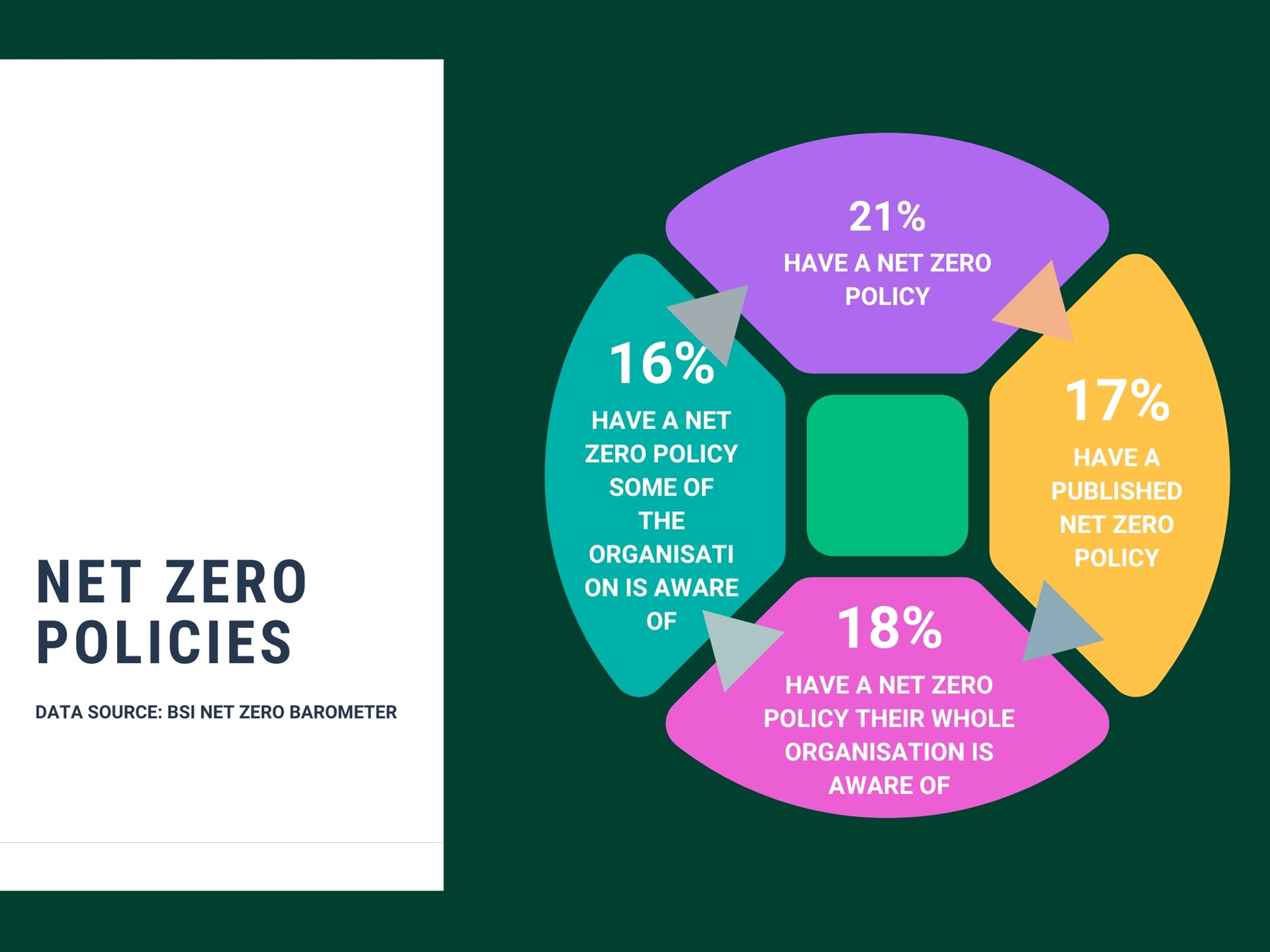
Nine in 10 business leaders call for greater government net zero support
20 May 2024
A recent study exploring the opportunities and barriers for businesses taking net zero action revealed that reputation is a key sustainability driver while costs remain the highest barrier, with nine in ten businesses calling for more government support.
The third annual Net Zero Barometer from BSI surveyed 1,000 SME leaders across the UK to gain insights to net zero progress. In the last three years the number of businesses identifying the importance of net zero has tripled as decarbonisation commitments continue to expand. Overall, the report suggests business optimism in the face of net zero is improving, but barriers still remain.
The survey found that 83 per cent of businesses are committed to achieving the UK’s legally binding net zero emissions by 2050 target. However, one in five organisations claimed they are “unable to commit” to achieving this target.
Plugging net zero knowledge gaps has been a key driver for the growing number of organisations committing to net zero with the number of businesses claiming full awareness of the meaning of net zero and understanding The Climate Change Act doubling from 21 per cent to 43 per cent in the last two years. This has led to 32 per cent of respondents describing themselves as “extremely confident” in their ability to reach net zero.
Exploring the motivators for net zero action, almost a third of SME leaders believe that enhanced reputation is a key benefit of taking action. This is echoed on the consumer side of the survey, as 73 per cent of surveyed customers said they’d pay more for a product or service that came from a company with solid environmental credentials and net zero commitments.


Global events have a significant bearing on the way UK organisations approach net zero. The war in Ukraine, for example, has triggered rocky supply chains, soaring energy costs, and record inflation, all of which cause net zero targets to slip down the agenda.
Of the businesses surveyed, 63 per cent said the cost of living crisis is the biggest geopolitical event likely to set back their net zero commitments, followed by 50 per cent citing the energy crisis, and 34 per cent identifying uncertainty over the government’s commitments to the net zero 2050 target.
For smaller businesses, costs are the main drawback in pursuing net zero. Businesses continue to express financial concerns in relation to pursuing decarbonisation projects and green technologies that will align them with net zero. As a solution, many organisations state improved government support to help with the costs associated with net zero would allow them to overcome this barrier.
56 per cent believe clean energy subsidies would help organisations reach net zero, and 52 per cent would like to see the government offering more grants for sustainable projects. This would help organisations to manage and deliver sustainable supply chains and implement the technologies they need in order to reduce energy costs and cut their emissions.
In partnership with:
The UK Shared Prosperity Fund is a central pillar of the UK government’s Levelling Up agenda and provides £2.6 billion of funding for local investment by March 2025. The Fund aims to improve pride in place and increase life chances across the UK investing in communities and place, supporting local business, and people and skills. For more information, visit https://www.gov.uk/government/publications/uk-shared-prosperity-fund-prospectus
The UK Shared Prosperity Fund is a central pillar of the UK government’s Levelling Up agenda and provides £2.6 billion of funding for local investment by March 2025. The Fund aims to improve pride in place and increase life chances across the UK investing in communities and place, supporting local business, and people and skills. For more information, visit https://www.gov.uk/government/publications/uk-shared-prosperity-fund-prospectus
This project is funded by the UK Government through the UK Shared Prosperity Fund.
The UK Shared Prosperity Fund is a central pillar of the UK government’s Levelling Up agenda and provides £2.6 billion of funding for local investment by March 2025. The Fund aims to improve pride in place and increase life chances across the UK investing in communities and place, supporting local business, and people and skills. For more information, visit https://www.gov.uk/government/publications/uk-shared-prosperity-fund-prospectus